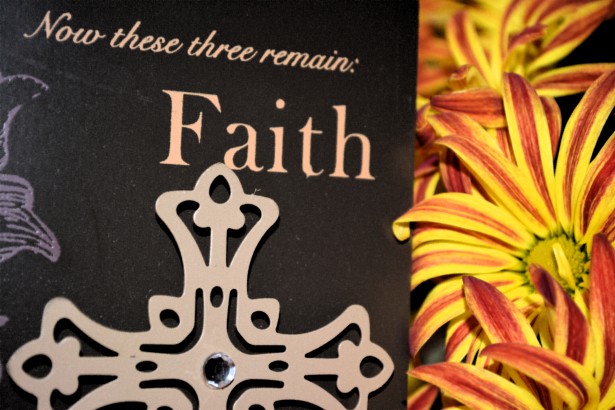Christmas felt different this year. I did not feel the Light shining in darkness. It feels as though the darkness has overcome the light. I feel the heaviness of bombed out, homeless Ukrainians more than Zelenkov’s resistance lightens my spirit. “Faith, hope, and love abide, but the greatest of these is love.” Love overflows the banks of hope, and no hope that ignores reasons for despair is worth a damn.

So I stayed home on Christmas Eve. In the morning, the NPR annual broadcast of the Festival of Lessons and Carols that lifted my soul in years past, was silent. I didn’t turn it on. Everything was off. Fairy tales can be true, or they can be delusive. Ludwig Feuerbach, Karl Marx, and Sigmund Freud’s critiques of religion as illusion crashed the place where sugar plumbs once danced in my head.
Faith is a Leap — Reality is Existential
So much of what passes for Christian faith is nonsense. It doesn’t take a Ludwig, a Karl, or a Sigmund to ask what is real; it’s not a head trip. The difference between illusion and reality is existential — a disturbance of the stomach, a migraine, or a numbness that won’t go away.
Eight years into retirement, I have stopped looking for a church home. Nowhere is the darkness darker than in the churches that profess Jesus Christ as Lord and Savior while following a stand-in savior who fabricates and perpetuates the lie that he has been robbed of his legitimate authority. The embrace of QAnon conspiracy theory — the latest iteration of the division of the world between the saved Bible-believing patriots, and the damn pedophiles, child kidnappers, and sex traffickers of the Deep State — fits like a glove, but it is a betrayal the churches profess.
I was never big on Satan. Over the years, the division of the human species between good (heaven-bound) and evil (hell-bound) made less and less sense until it made no sense at all. Belief in life after death, or, as William Stringfellow called it, “after-death life,” struck me as a comforting delusion, the fanciful escape from death, the limit of every mortal creature.

Who we are, and what we’re not
The Book of Genesis parable of humankind’s tragedy in the Garden of Eden goes straight to the heart of the matter. The temptation is to know what only God knows, namely, the difference between good and evil that would make them like God, i.e., the illusion that they, the human creatures, would never die. The great sin is refusing to be what we are — trying to be what we are not.
The Day after Christmas in Minnesota

December 26, 2022, marked the 160th anniversary of the Mankato Massacre when 38 Dakota were hanged on a platform built for public shaming. The white European settlers gathered to observe the largest execution ever to take place on American soil.
They came to watch the ultimate shaming, but, before the execution, they heard what they did not expect. The heard voices from the gallows, chanting a prayer to the Great Spirit:
Wakantanka taku
Dakota hymn
nitawa
tankaya qaota;
mahpiya kin eyahnake ca,
makakin he duowanca.
Mniowanca sbeya wanke cin,
hena ovakihi.
Many and great, O God, are Thy works,
Maker of earth and sky;
Thy hands have set the heavens with stars,
Thy fingers spread the mountains and plains.
Lo, at Thy word the waters were formed;
Deep seas obey Thy voice.
Grant unto us communion with Thee,
Thou star-abiding One;
Come unto us and dwell with us:
With Thee are found the gifts of life.
Bless us with life that has no end,
Eternal life with Thee.
Mankato was not calm the day after Christmas in 1862. No bright star shone down on the gallows. No angels sang. No babe in swaddling cloths. No shepherds knelt. No cattle were lowing. No ‘kings’ brought gifts. No carols rang out from the churches.
The day after Christmas was a time for crucifixion (a state execution) by White Christian Nationalists. Even so–or perhaps because it was a crucifixion — a Dakota hymn of faith, hope, and love still echoes from a gallows in Mankato. Love overflows the banks of hope, and no hope that ignores reasons for despair is worth a damn.
Gordon C. Stewart, public theologian and social commentator, author of Be Still! Departure from Collective Madness (2017 Wipf and Stock), Brooklyn, MN, December 26, 2022.
